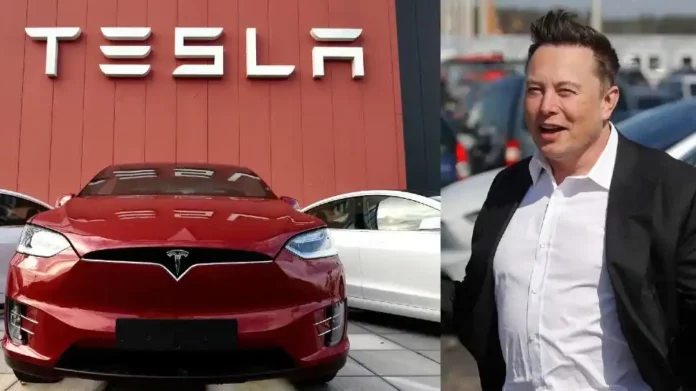After years of delay, Elon Musk, CEO of Tesla, is ready to make his debut in the rapidly growing Indian electric vehicle (EV) industry in the New Year. This gives the general public hope that owning a more affordable Tesla Model 3 may soon be achievable with local production of battery components and a stable EV supply system.
According to reports, he is scheduled to land in India between January 10 and 12, at the ‘Vibrant Gujarat Global Summit.’ Gujarat has become the “preferred destination for Tesla’s manufacturing plans” because of its advantageous location and business-friendly climate.
Although neither the government nor Musk has officially announced this news, it is expected that Musk will announce to manufacture in India during the showpiece event, perhaps in PM Modi’s presence.
Industry analysts claim that Tesla’s costs are essentially the same everywhere. As of now, the most affordable model, the Model 3, is offered for $40,240 (about Rs 33.5 lakh). The cost of bringing this model into India will be in the range of Rs 60-66 lakh. For electric cars (EVs) costing more than $40,000, India levies a 100% import tax.

Tesla’s growth in India
The electric car manufacturer, Tesla, intends to establish its auto parts and electronics chain in India, along with incentives and tax benefits. If all goes according to plan, the company can reportedly create 5 lakh electric automobiles annually, with prices starting at Rs 20 lakh.
Although the official position of India is that no subsidies will be given for the import of electric vehicles (EVs), there have been recent reports indicating that Tesla might be allowed to import fully-built cars at a concessional import charge of 15-20%, which would be a major decrease from the present duty of 100% on such imports.
Senior analyst Soumen Mandal of Counterpoint Research told IANS, “This import duty can be eliminated by setting up local production, paving the way for a cheaper, affordable Tesla car.” These cost savings may also be realised if Indian-made Tesla cars are less feature-rich than American-made versions.
“For instance, Advanced Driver Assistance System (ADAS) Level 2 could be added in place of some hardware needed for Full Self-Driving (FSD),” Mandal continued.
Both the electric motors and the battery pack, which are imported from China, can be of lower power and have a capacity of less than 50kW. Additionally, researchers suggest using a smaller central display and reducing the number of gadgets in the vehicle.
Reports state that if the government must consider providing subsidies to Tesla, it will do so for all EV manufacturers as well as overseas competitors. In an attempt to break the impasse, Tesla representatives have been holding lengthy discussions with Indian government representatives and business leaders in recent months.
“The prospect of a Tesla in India at a price of approximately Rs 20 lakh is dependent on several factors, such as potentially alluring policy incentives and Tesla’s capacity to achieve supply chain and cost efficiencies to effectively leverage local manufacturing.” All in all, Prabhu Ram, the chairman of CyberMedia Research’s Industry Intelligence Group (IIG), says that Tesla’s business model will determine price decisions (CMR).
The car industry is incredibly cutthroat. According to Ram, regulatory incentives could provide Tesla with a competitive edge, but they would also encourage incumbents in the automotive business to increase their investments and diversify their electric vehicle portfolio.
By 2030, India’s EV market might reach over 40% penetration and generate $100 billion in revenue.
According to a recent analysis by Bain & Company and Blume Ventures, significant adoption (over 45 percent) in the two-wheeler (2W) and three-wheeler (3W) categories is predicted to fuel this development, with four-wheelers (cars) projected to increase to more than 20 percent of the market. “With prices starting from Rs 20 lakh, we expect India to become a manufacturing hub for compact EV models,” stated Mandal.


